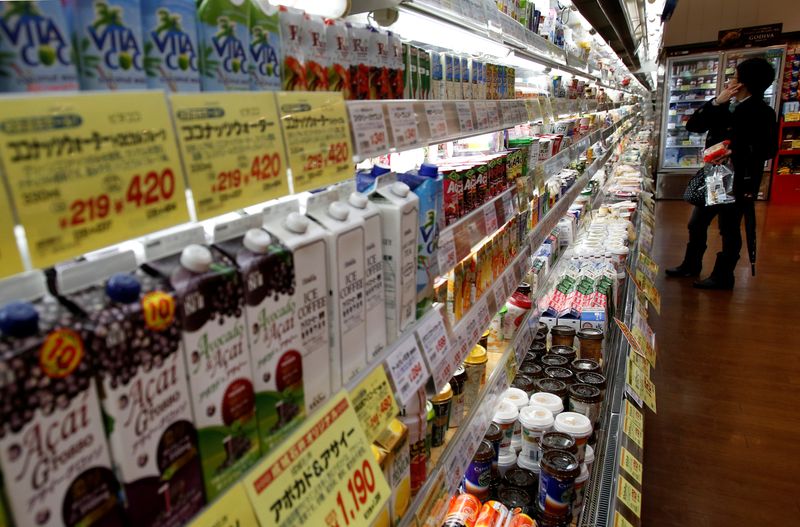By Daniel Leussink
TOKYO (Reuters) -Japan's core consumer prices rose at the fastest pace in more than two years in March, raising worries higher energy and food costs could increasingly take a toll on households' purchasing power.
The core consumer price index (CPI), which excludes volatile fresh food prices but includes fuel and broader energy costs, jumped 0.8% in March from a year earlier, government data showed on Friday.
The pace indicates the core CPI could near the Bank of Japan's (BOJ) 2% target in April as the impact of mobile phone fee cuts from that month last year fades from yearly comparisons.
Mobile phone fees pulled overall CPI down 1.42 percentage point in March, which a government official said would likely disappear from the year-on-year estimates in steps, especially in April, August and October.
"Around one percentage point will likely disappear in the April result, but it's not likely it will drop out completely," the official said, adding that he could not say what the chance was that year-on-year core CPI may exceed 2% in April.
The price data will be among factors the BOJ will scrutinise at its next two-day rate review, which is scheduled to end on Thursday, where it is likely to raise its inflation forecast for this fiscal year to near 2%.
Core consumer price inflation has posted a year-on-year increase every month since September. March's increase marked the fastest year-on-year rise since January 2020.
"Real incomes will be pushed down when prices go up so it's likely to impact the economy that way," said Takumi Tsunoda, senior economist at Shinkin Central Bank Research.
"When prices of food, fuel and other essentials rise it doesn't have a good impact on consumer sentiment. It will likely lead to a desire to save on spending in other areas."
Energy prices rose by 20.8% in March compared to the same month last year, their sharpest year-on-year gain in over four decades. Food prices excluding those of fresh food were up 2.0% year-on-year in March, the biggest rise in a single month since December 2015.

Overall, however, the rate of price increases in Japan has remained modest compared with much sharper gains in the United States and other advanced economies, as sluggish wage growth in Japan discourages firms from hiking prices much.
The BOJ has stuck to its massive monetary stimulus as it seeks to have inflation stably hit its 2% target on the back of strong wage growth, despite worries that a weakening yen is driving up import costs of food and energy.